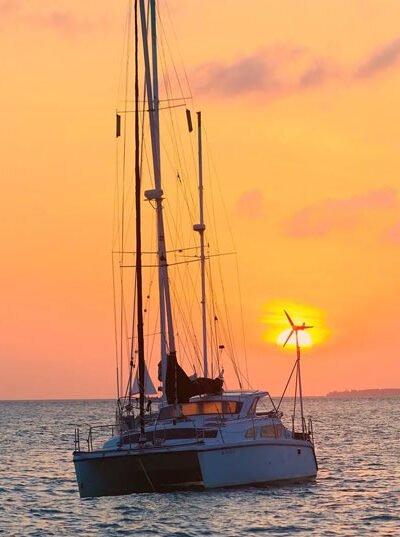 Boating in Florida sounds like a dream, right? Warm weather, endless waterways, and some of the best fishing and sightseeing you could ask for. Still, before you grab your keys and hit the docks, there’s a lot to consider. Florida’s waters are just as unpredictable as they are beautiful. There are rules to follow, whether to watch and safety measures you don’t want to ignore. Also, picking the right spot can make or break your trip. Whether you’re a first-time boater or just new to Florida’s waters, this guide will help you confidently set sail.
Boating in Florida sounds like a dream, right? Warm weather, endless waterways, and some of the best fishing and sightseeing you could ask for. Still, before you grab your keys and hit the docks, there’s a lot to consider. Florida’s waters are just as unpredictable as they are beautiful. There are rules to follow, whether to watch and safety measures you don’t want to ignore. Also, picking the right spot can make or break your trip. Whether you’re a first-time boater or just new to Florida’s waters, this guide will help you confidently set sail.
Pick the right place for boating
According to the insight we got from people at a renowned boat club in Florida, where you decide to take your boat makes all the difference in your experience. Some spots offer calm, beginner-friendly waters, while others are better suited for thrill-seekers or fishing enthusiasts. Accessibility, available amenities, and crowd levels can also play a big role in how enjoyable your trip turns out.
The Everglades is one of Florida’s most unique boating destinations. You’re surrounded by untouched nature, and the waters are rich with wildlife. This isn’t the place for high-speed boating – many areas are protected, and manatee zones require slow speeds. It’s best suited for kayaks, airboats, and shallow-draft vessels looking for a scenic, peaceful ride.
If you want crystal-clear waters and a tropical feel, the Florida Keys should be at the top of your list. The islands offer some of the state’s best snorkeling and fishing opportunities. Moreover, the variety of marinas makes it easy to dock and explore the local restaurants and attractions. Remember that boat traffic can get heavy, especially around Key West.
Tampa Bay or Miami are both excellent choices for those who prefer urban boating. These areas offer a mix of city skylines and open waters, giving you the best of both worlds. Also, there’s no shortage of places to dock, fuel up, or grab a bite. Boat traffic can be intense, so knowing the local waterway rules is a must.
Know Florida’s boating laws
If you think driving laws are strict, you haven’t seen Florida’s boating regulations. The state takes safety seriously, and there are a few rules you must follow to avoid fines – or worse, accidents. Laws can vary depending on your age and the type of boat you’re operating.
First, you might need a boating license before hitting the water. Florida requires anyone born after 1987 to complete a boater safety course before legally operating a vessel. Rental companies won’t even let you take a boat out if you don’t have the proper certification, so it’s something you’ll want to handle in advance.
There’s also a minimum age requirement for driving a boat. In Florida, you must be at least 14 years old to operate a personal watercraft (like a jet ski) and 18 to rent one. If you’re underage and caught boating unsupervised, law enforcement won’t hesitate to pull you over – and you can expect hefty penalties.
Life jackets and safety gear aren’t optional. Every boat must have a U.S. Coast Guard-approved life jacket for every passenger, and children under six must wear one at all times. Depending on the size of your boat, you may also need an emergency whistle, fire extinguisher, and visual distress signals. Failing to carry these essentials could land you in trouble if you are inspected.
Understand the local weather conditions
Florida’s weather is unpredictable, and that’s putting it lightly. One minute, it’s all sunrise and calm waters – the next, you’re caught in a sudden downpour with strong winds pushing your boat around. Also, the heat can be brutal, making proper hydration and sun protection just as important as watching the sky.
Sudden storms are common, especially in the summer. The good news is that they don’t usually last long, but the bad news is that they can get intense fast. Afternoon thunderstorms pop up almost daily, bringing heavy rain, lighting, and gusty winds. Checking the forecast before you leave isn’t optional – it’s a necessity.
Hurricane season is another factor to consider. From June through November, storms can develop quickly, and while you’ll usually get a warning days in advance, conditions can deteriorate faster than expected. Also, even if a storm isn’t a direct hit, strong winds, and rough seas can make boating dangerous, so it’s best to avoid the water when there’s any kind of storm activity nearby.
Tides and wind patterns can affect small boats more than people realize. A strong outgoing tide can make docking tricky, and sudden gusts can throw off your balance. Areas like the Intracoastal Waterway and inlet tend to experience stronger currents, so knowing how tides and winds affect your boat’s handling is a skill every boater should develop.
Essential safety precautions
A lot of people think boating accidents only happen to careless boaters, but that’s not always the case. Even experienced captains can run into trouble if they aren’t prepared. That’s why having a solid safety plan is one of the smartest things you can do before heading out on the water.
For starters, always carry a first aid kit on board. It’s one of those things you don’t think about until you need it – and it’s too late by then. Also, minor injuries like cuts, burns, or stings can happen when you least expect them, so having basic medical supplies can save you from an uncomfortable (or dangerous) situation.
Another must-do is filing a float plan before departure. This just means letting someone know where you’re going and when you expect to return. If something goes wrong and you don’t check in, they’ll know to alert the authorities. In case of an emergency, search and rescue teams will have a starting point, which can make all the difference.
One piece of equipment you should never overlook is a working VHF radio. Cell service can be unreliable on the water, and if you need help, a VHF radio is your best bet for reaching the Coast Guard or other boaters nearby. Also, learning how to use one properly is a good idea, so you’re not fumbling around in a real emergency.
Wrap up
Boating in Florida is more than just hopping on a boat and cruising around – it’s about knowing where to go, what to bring, and how to stay safe. A little preparation goes a long way in making sure your trip is smooth, fun, and stress-free. Also, understanding the laws and respecting the environment means you’re doing your part to keep Florida’s waterways beautiful for years to come. Whether you’re chasing adventure in the Keys or relaxing on Tampa Bay, the right knowledge will make all the difference.





Leave a Reply